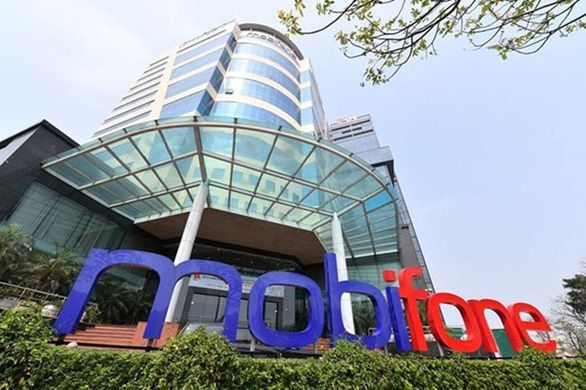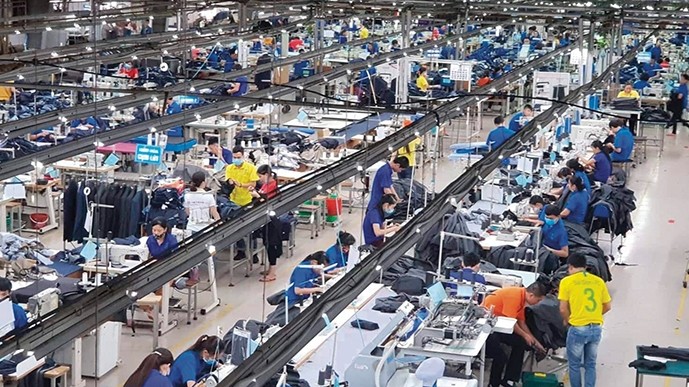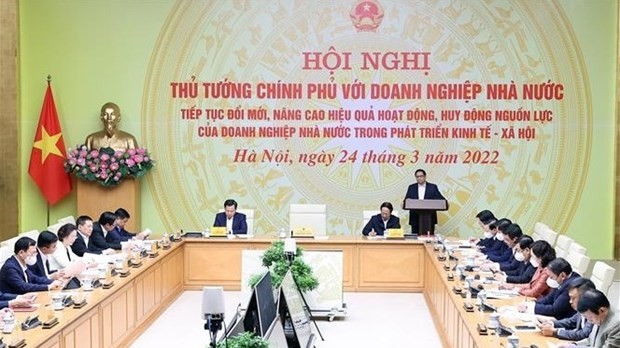Three industries would be piloted first, including telecommunications, energy and defence. Accordingly, three SOEs proposed to be selected for the pilot implementation were Mobifone, EVN and Viettel.
The ministry said telecommunications, energy and defence were important industries to the development and security of a country, which would supply indispensable inputs for production and business, provide infrastructure for digital transformation and in the fourth Industrial Revolution as well as ensuring national defence.
Mobifone was proposed for the telecommunications industry because it had a good financial situation and business results among three telecommunications companies, according to the ministry.
In addition, Mobifone had good technology and corporate governance system which were inherrited from the previous cooperation with Sweden’s Kinnevik/Comvik Group. Mobifone was also focusing heavily on digital transformation and developing an ecosystem for digital transformation for private companies.
In the energy industry, Vietnam Electricity (EVN) was proposed because EVN accounted for nearly 50 percent of the country’s total electricity output together with experiences in investing in power sectors, especially clean energy.
Viettel was proposed for the defence industry because it was taking the lead in research and development, manufacturing, technology transfer, import and export of military technical equipment and dual-use items.
At the same time, Viettel with the focus on high-tech defence, electronics and telecommunications and network securities industries set the target to become one among the top 80 enterprises with the highest revenue from defence activities in the world by 2025.
Selected SOEs would play roles in paving the way and leading other enterprises in the formation and expansion of supply and value chains regionally and globally, the ministry said.
The ministry also proposed solutions for Mobifone, EVN and Viettel to make them spearheads.
Accordingly, the privatisation of Mobifone would be sped up so the State would hold a stake of 51 percent of its charter capital after privatisation. The privatisation of Mobifone was proposed to be carried out before VNPT’s. In addition, no foreign strategic investor would be selected for Mobifone’s privatisation.
EVN would be encouraged to play the key role in investing in renewable energy projects.
For Viettel, a defence industry development fund would be founded, sourced from the group’s after-tax profit, together with a venture capital fund to promote the commercialisation of new products.
Under the draft project, the ministry proposed five criteria to identify spearhead SOEs, including charter capital from 1.8 trillion VND or higher, dominant market share (from 30 percent), good governance system, operating in key sectors such as infrastructure, industry, energy, telecommunications and finance and banking and State-wholly owned or State holding the controlling stakes.
Accordingly, a total of 17 economic groups and corporations were proposed to be selected following these criteria.
The ministry said that the operation efficiency of these 17 SOEs was not commensurate with the resources on hand.
Statistics showed that these 17 SOEs had assets worth 2.56 quadrillion VND in 2019.

| CPTPP tariff cuts and SOE monopoly removal usher in opportunities In a bid to attract more investment and expand trade, Vietnam will soon officially implement its commitments to decrease and remove export and import tariffs, ... |

| Vietnam may lose national brands after SOEs are sold to foreign investors Many Vietnamese businesspeople are concerned about the sale of state enterprises to foreign companies which might eliminate their brands. |

| SOEs equitisation remains slow As many as 96.5 percent of State-owned enterprises (SOEs) was equitized as of the end of March this year, the privatized capital amount from these ... |



























